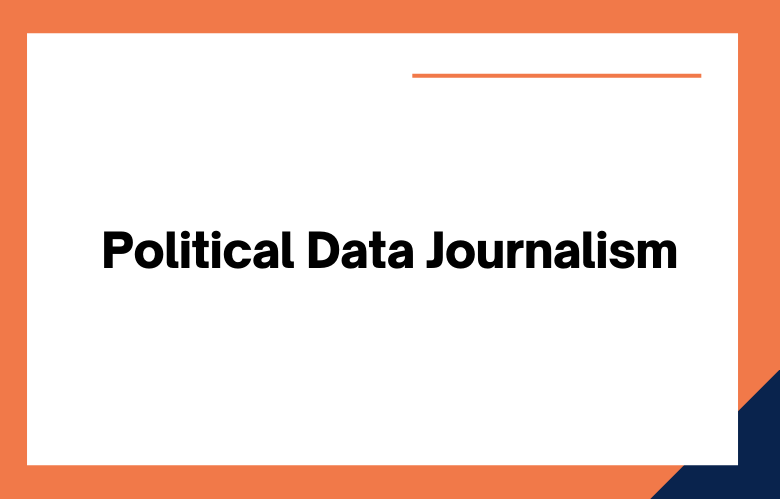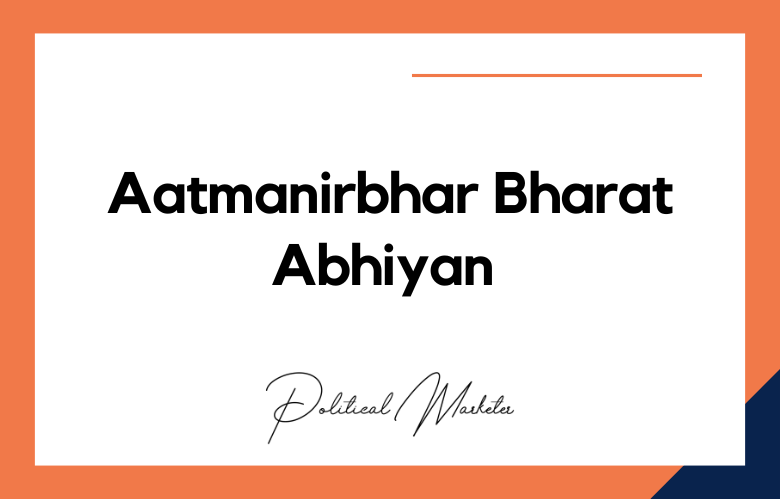Political campaigns are always looking for new and innovative ways to get an edge on their opponents, which can be possible with political data journalism. Many drives use big data-driven analytics to improve how they target voters, identify potential donors, and measure the effectiveness of their advertising efforts.
By harnessing the power of data, campaigns can get a more accurate picture of what is happening on the ground.
We will explore how big data-driven analytics is used in political campaigns and how it is helping them achieve success.
Campaigns are becoming increasingly data-driven as political candidates and organizations seek to employ new big data analytics techniques to improve their chances of victory at the polls.
By harnessing the power of big data, campaigns can better target voters, identify issues that matter most to them, and craft persuasive messages.
We will explore how big data is being used in political campaigns and how it is helping to shape the future of politics.
So gear up your laptops and prepare to crunch some numbers – let’s dive into political data journalism!
What is Political Data Journalism?
It’s a niche of journalism that relies on data to produce stories about politics.
This type of journalism often requires journalists to have a strong understanding of statistical analysis and data visualization and be able to tell stories engagingly.
Some examples of political data journalism include election reporting, analyzing campaign finance data, or looking at how power structures have changed over time.
Political data journalism can illuminate hidden stories or hold those in power accountable.
- Political data journalism is a subset of investigative journalism that focuses on uncovering stories and data points related to politics.
- It often involves digging through government records, election results, and other data sources to find patterns and stories that might go unnoticed.
- Political data journalism can be used to shine a light on issues like campaign finance, gerrymandering, voter fraud, and much more.
- In recent years, data journalists who could see beyond the traditional narrative have broken some of the most important political stories.
Political Data journalism Is journalistic work that uses data as a primary source.
Political data journalism is often used to chronicle events or trends over time, exposing patterns that may otherwise be hidden.
Data journalism can also personalize stories, bringing the statistics to life with real people and examples.
Political data journalists use a variety of data sources to inform their reporting, including government data, polls, and election results.
They often use data visualization techniques to help readers understand complex issues.
Political data journalism is a powerful tool for shining a light on the inner workings of government and holding officials accountable.
It’s a form of journalism that uses data to tell stories about political issues. This type of journalism can help readers understand complex problems by breaking them down into digestible bits of information.
Political data journalists often use statistical analysis, infographics, and other data visualization techniques to make their stories more accessible and engaging.
It is political data journalism that uses data to report political issues. This type of political data journalism can be used to investigate and expose wrongdoing or provide information about politics and government.
Political data journalism can shed light on the government’s inner workings or provide citizens with information about the political process. This type of journalism is essential in a democracy as it helps to keep people informed about the issues that affect them.
However, what is data journalism in the context of political reporting?
Data journalism can involve using data to investigate and report various political issues.
For example, data journalism can track campaign spending, analyze voting patterns, or examine the effects of popular policy initiatives.
By using data to shed light on critical political issues, data journalists can help engage readers and promote public discussion.
How Big Data-Driven Analytics Improves Political Campaigns
A better understanding of the electorate:
Big data-driven analytics can help political campaigns better understand the electorate. This includes identifying key demographics, understanding their voting behavior, and targeting them with personalized messages.
Improved communication:
Big data-driven analytics can also improve communication between political campaigns and the electorate. This improved communication can help ensure that voters get accurate information and keep campaign promises.
Increased efficiency:
Finally, big-data-driven analytics can help political campaigns increase their efficiency. This includes identifying wasted resources and ensuring that every dollar is used fully.
- Big data is becoming increasingly important in political campaigns.
- By analyzing massive data sets, campaigns can target voters more effectively.
- In the past, campaigns had to rely on guesses and hunch about what would work best.
- But now, with big data, they can fine-tune their messages and strategies for maximum impact.
- As a result, we see more targeted, effective campaigns making a real difference.
According to a recent study, Big Data-driven analytics can significantly improve political campaigns.
Researchers found that campaigns can save money and increase their effectiveness by using data to target specific voters.
- Big data provides insights that help to improve political campaigns.
- Data was often collected manually and then processed in the past, which was time-consuming and often resulted in inaccuracies.
- Big data brings together information from multiple sources and provides a more holistic overview that can be used to make campaign decisions.
- Analytics can help predict voter behavior and target specific demographics.
- In the future, big data will continue to play a significant role in politics and shape how campaigns are run.
Analytics play a significant role in determining the success of political campaigns. By understanding how people interact with campaign content, strategists can make better decisions about tactics.
Data-driven analytics can help improve the effectiveness of political campaigns in some ways. By providing insights into how people interact with campaign content, analytics can help campaign strategists make better decisions about tactics. This can ultimately lead to more successful campaigns that engage and motivate voters better.
Big data is changing the landscape of political campaigns. By harnessing the power of data analytics, campaigns can now target voters more efficiently and effectively than ever before.
Data-driven analytics helps campaigns identify trends and patterns that would otherwise be hidden.
This allows campaigns to tailor their messaging and strategies to better appeal to the needs and wants of voters.
Big data is providing a new level of insight into the electorate. By understanding the data, campaigns can make more informed decisions about allocating resources and how to best communicate with voters.
Big data is becoming a powerful campaign tool in an increasingly competitive political landscape.
Analytics helps campaign managers to optimize strategies and better understand the electorate. This leads to more effective campaigning.
By harnessing the power of data-driven analytics, campaigns can gain a wealth of insights into the preferences and behaviors of voters.
This can allow them to tailor their messages and strategies more effectively, improving outcomes.
By understanding the behaviors and attitudes of voters, campaigns can more effectively target their message and get their candidates elected.
Conclusion
Big data-driven analytics can help political campaigns improve messaging, target voters more accurately, and allocate resources more efficiently.
By understanding how to use big data analytics, your campaign can avoid costly mistakes and maximize its chances of winning on election day.
We would happily share our exclusive services with you and answer any questions.
Political Data Journalism: How Big Data-Driven Analytics Improves Campaigns – FAQs
What Is Political Data Journalism
Political data journalism is the practice of using data-driven analysis, visualizations, and reporting to explain political trends, election outcomes, public policy, and governance.
Why Is Political Data Journalism Important in Democracies
It enhances transparency, helps voters understand complex issues, and holds politicians and institutions accountable through evidence-based reporting.
How Does Data Journalism Differ from Traditional Political Reporting
Data journalism uses quantitative methods, statistics, and visual tools, while traditional reporting relies more on quotes, narratives, and qualitative assessments.
What Are the Core Skills Required for Political Data Journalists
Skills include data analysis, statistics, coding (Python, R), data visualization, investigative reporting, and political understanding.
What Tools Are Commonly Used in Political Data Journalism
Popular tools include Excel, Google Sheets, Tableau, Datawrapper, Flourish, Python, R, and APIs for accessing election and public data.
How Do Data Journalists Ensure the Accuracy of Their Political Analysis
They rely on verified datasets, cross-source validation, transparent methodologies, and peer review to maintain credibility.
What Are Some Common Sources of Data for Political Journalism
Sources include election commission data, parliamentary records, public budget documents, RTI responses, open government portals, and surveys.
Can Political Data Journalism Influence Election Outcomes
Yes, data stories on turnout, candidate backgrounds, or funding can inform voters, shift narratives, and even pressure candidates to clarify their positions.
What Role Do Infographics Play in Political Data Journalism
Infographics simplify complex information, making it easier for readers to grasp patterns, comparisons, or geographic insights at a glance.
How Does Political Data Journalism Promote Civic Engagement
It educates the public on governance, demystifies policy impacts, and provides tools to question official narratives or demand accountability.
What Ethical Challenges Are Faced in Political Data Journalism
Challenges include data privacy, misinterpretation risks, algorithmic bias, and pressure from political entities to manipulate or suppress findings.
How Are Election Results Visualized in Data Journalism
Through interactive maps, bar charts, vote share graphs, and real-time dashboards that break down results by region, party, or demographics.
Is Political Data Journalism Biased
While data itself is neutral, interpretation and framing can introduce bias. Responsible data journalism discloses methods and avoids cherry-picking.
What Is the Role of Open Data in Enabling Political Journalism
Open data empowers journalists to independently analyze budgets, policies, and election outcomes, reducing reliance on official press briefings.
How Can Readers Verify Political Data Stories
By checking cited sources, reviewing raw data (if available), and examining methodology notes usually provided in credible reports.
How Do Journalists Handle Missing or Incomplete Political Data
They clearly flag data gaps, use proxies or estimates with caution, and explain limitations to avoid misleading the audience.
How Does Data Journalism Deal with Misinformation in Politics
It counters misinformation with fact-based evidence, transparent datasets, and visuals that clarify misleading or exaggerated political claims.
What Are the Risks of Oversimplifying Political Data
Oversimplification can lead to misinterpretation, erasure of minority voices, or distortion of nuanced realities in policy or voting behavior.
Can Political Data Journalism Be Used in Regional or Local Elections
Yes, it’s especially useful in analyzing booth-level turnout, candidate spending, hyperlocal issues, and demographic voting patterns.
What Is the Future of Political Data Journalism in India
The future includes AI-powered analysis, regional language data storytelling, interactive mobile dashboards, and greater public participation in data literacy.
One way to get in touch is by filling out our online form on this site or give us a call at
+91 9848321284. Let’s work together today!











